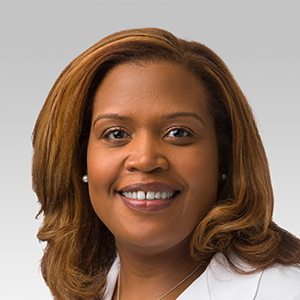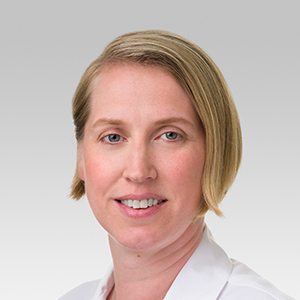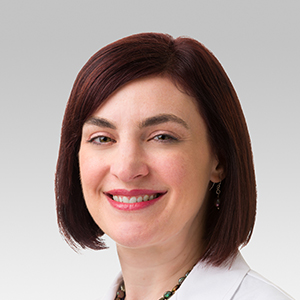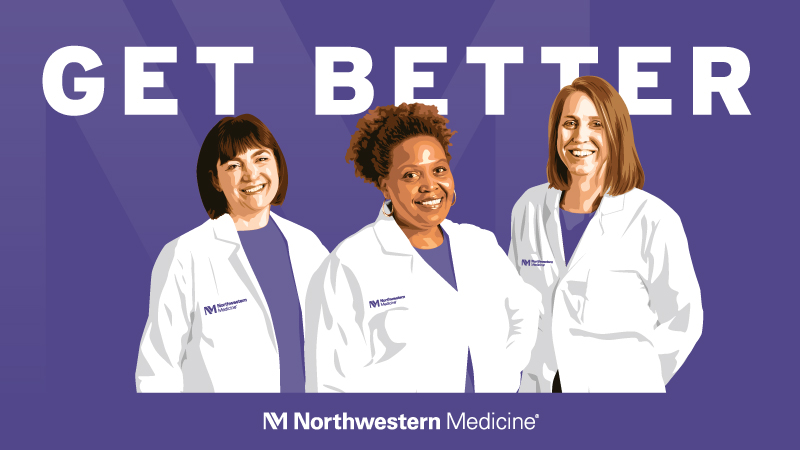SEASON 1 EPISODE 6
Get a Colonoscopy [Podcast]
Why colorectal cancer screening is so important.
Published March 2022
About the Get Better Podcast
Living a healthier life is a journey with no final destination: You can always get better.Susan Russell, MD, Khalilah Gates, MD, and Michelle Prickett, MD, are three pulmonologists at Northwestern Medicine who help people get better from critical illnesses. They are also lifelong friends and lifelong learners who want to get better from head to toe.
These three physicians will learn alongside you as they interview other Northwestern Medicine experts about health and medicine topics meant to help you achieve better health.
Transcript
Susan Russell, MD [00:00:02] Let's get stronger.
Khalilah Gates, MD [00:00:03] Healthier.
Michelle Pickett, MD [00:00:04] Calmer.
Susan Russell, MD [00:00:05] Smarter.
Khalilah Gates, MD [00:00:05] Better.
Susan Russell, MD [00:00:07] Living a healthier life is a journey, not a destination.
Khalilah Gates, MD [00:00:10] You can always get better.
Michelle Pickett, MD [00:00:12] Let's get better together. Hi, I'm Dr. Michelle Prickett. I'm joined today by my co-host, Dr. Susan Russell, and we're here with Dr. Adam Stein, who is a gastroenterologist and the director of Nutrition Support at Northwestern Medicine. Today, we're going to talk about colorectal health and the importance of screening for colorectal cancer. Excluding skin cancers, colorectal cancer is the third most common cancer diagnosed in both men and women in the United States. So, the good news is we have great screening methods, including colonoscopies, to detect and treat early cancers. But we need to know about the options and, more importantly, to use them. Today, we'll discuss normal bowel patterns, why colonoscopies are so important, who needs one, and what we should expect if you're scheduled to get one. Welcome, Dr. Stein.
Adam Stein, MD [00:01:03] Thank you for having me. I'm always excited to talk about colon cancer, not the cancer part, but the prevention part.
Michelle Pickett, MD [00:01:10] This is not a topic a lot of people like to talk about. I love to talk about bowel habits. It is to me as natural as eating. That's not everyone. So, I'm going to leave that disclaimer out there. Hopefully, we can have a really honest discussion, really destigmatize some of the things that come with bowel habits and hopefully educate everyone so that they feel comfortable discussing this with their physician. So, let's start by defining what normal bowel habits are.
Adam Stein, MD [00:01:38] The typical teaching is it's the rule of threes. You can have up to three bowel movements a day, or you can go up to three days between bowel movements. That's a good typical range, but there's a lot of nuance between those three bowel movements a day and having a bowel movement every three days. The reality is, if you have a bowel movement, you feel pretty good afterwards. If you feel like you got everything out, that's normal. What's not normal is pretty much everything in between. But, we talk about not normal being changes and what the stool looks like, difficulty getting all the stool out, changes in color, having multiple bowel movements a day or going, you know, several days in between. The big thing is it's the change from where you think you should be to where you are now. If you are a once-a-day kind of person, you have your cup of coffee, you read the newspaper or whatever you do on your phone and then you sit down and have a bowel movement. You get up and you're good to go. If that's your normal routine, that's great. But if that changes, let's say it changes so that you're not going every day or you go a couple of times a day to feel like you get everything out, those sorts of things, or you look in the stool and you're like, that looks kind of different than normal. It looks red or it looks maroon or colors changing, then that's not normal, and that's something that we want to hear about. So, normal is pretty relative to your habits. We call them bowel habits for a reason. It's a habitual thing. It's a thing that you do, hopefully pretty routinely.
Susan Russell, MD [00:03:11] Michelle and I, as pulmonary and critical care doctors, when we work in the ICU, it is something we're very concerned about. And I always think about it as being tied to two things, which is fluid intake and activity. And I always think of that as like the two things you really need to be normal.
Adam Stein, MD [00:03:27] In the hospital setting, bowel habits are tough to continue, especially if you're in the intensive care unit or you're having procedures and people aren't letting you eat or drink for long periods of time and things like that. But at home, certainly the two real critical things for having normal bowel movements, bowel habits, number one is exactly what you're saying — hydration, fluid intake. Your GI system, when you eat or drink something it goes through the esophagus into the stomach, and then the stomach empties into the small intestine, which actually isn't so small, it's about 15 to 20 feet long. And that's where all of the nutrient absorption occurs. And then the small intestine empties into the colon. In the colon is where all the magic happens. That's where all those things you eat and drink get processed and the colon's main job, beyond packing up the stool, is to hydrate. You can absorb a ton of water in the colon. And when you have healthy bowel movements, a lot of the stool that you produce is wet. It has some fluid in there. And if you're dehydrated, your colon's job is to suck that fluid out of out of your stool to provide you with extra hydration. So, if you're not well hydrated, your stool is going to be smaller. It's going to be harder. It's going to be more difficult to pass because your colon is really trying to make up for that hydration for you not drinking enough. So, you're exactly right. Hydration is so, so, so important. And then the second thing you said, I totally forgot about.
Susan Russell, MD [00:05:03] Activity, which I think is pretty relevant in our COVID landscape, where people have just been sitting around all day.
Adam Stein, MD [00:05:11] Well, I'll tell you, any physical activity stimulates the digestive system. So, your digestive system is full of nerves. We call it the second brain because of all the nerves that are connecting your gut not only to itself, but also to your brain. How do you know you need to eat? You know, something signals your brain to say, 'Hey, I'm hungry, I need to eat', or, 'Hey, I have to have a bowel movement. Let me find a toilet.' It's those nerves in your gut that are sending those signals to your brain and vice versa. So, physical activity, the muscular system will send signals to the gut and help stimulate movement. Eating helps stimulate movement, drinking helps stimulate movement, physical activity helps stimulate movement. And then there's a ton of stimulants out there. The main one being coffee, you know, so most of us, when we drink coffee in the morning, that really wakes up the intestine and says, 'All right, day is about to begin, let's get going.' So, yeah, physical activity is important. Anybody who is in the hospital, not moving a lot, will have their bowel habits impacted. You're totally right.
Michelle Pickett, MD [00:06:18] Susan and I both have young kids that don't like to talk about this. So, describing stool and kind of understanding where they fall on that spectrum is somewhat of a challenge. Are there any tools out there that you can use that are more user-friendly that might help guide what's normal versus what's abnormal, just to give us an idea?
Adam Stein, MD [00:06:36] So, there's actually a chart that we use in practice that describes your stool, but it gives it a number value. So, there's this thing called the Bristol Stool Chart or Bristol Stool Scale. It's out of one to seven. It talks about whether your stool is solid or loose, if it's clumpy, and it allows us to give more of a number to how your stool looks rather than give you, you know, all of these characterizing factors of what your stool looks like so that we can easily communicate with each other. Oh, somebody has a Bristol two or Bristol seven or something so that we know what the stool looks like without having to use all of those words that you don't necessarily want to say in a professional setting or with your friends or whatever.
Michelle Pickett, MD [00:07:27] This is March. We're talking about the colon, which is the second brain/processing system for waste in the body. One in 23 men and one in 25 women in their lifetime will develop colon cancer, with higher rates for certain populations, including Black Americans, Indigenous people, Asian Americans and then Jews of Eastern European descent. So that, to me, was really high numbers. And then more importantly, one in three adults who are eligible are not getting screened. Who needs to get screened? Where, you know, who should we be targeting with this?
Adam Stein, MD [00:08:01] We just updated our recommendations within the last year. In general, most people 45 or older need to be screened for colon cancer. The only people who need to have a colonoscopy before 45 are people who have a family history of colon cancer. If you have a family history of colon cancer, talk to your doctor. You might need it before the age of 45, but otherwise, pretty much everybody should have some sort of colon cancer screening starting at the age of 45, Now, there's a big asterisk with that because that's just for colon cancer screening. That means you're healthy. You don't have any issues with your bowels. No GI symptoms at all. When you start to have problems with your bowel movements or your GI system, so you have abdominal pain, you see some blood in the toilet after you go. Your bowel habits aren't the same as they once were. That's when we start to recommend colonoscopy outside of the normal colon cancer screening window. But in general, if you're not having any problems, you hit that age 45, we recommend colonoscopy. Now it used to be 50 and everybody said, 'Oh, I turned 50, it's time for my colonoscopy.' We've moved it to 45 and we did that, not necessarily because we were finding colon cancers in people who are younger, but we're really trying to prevent colon cancer. We're really trying to find those precancerous changes in the colon. The way that people develop colon cancer is it starts by part of your colon, the cells that line part of the colon, start changing and mutating and not acting appropriately. And then those cells turn into what's called the polyp. Polyp is a little growth in the colon, and that polyp contains precancerous cells or changes that, over time, might turn into cancer. And so over time, if that polyp sits there, it can turn into cancer. And people 50 and older, we were finding too many cancers and we wanted to lower the age, not necessarily to find cancer, but to find these precancerous polyps, these precancerous changes so that we can go in, remove it and prevent colon cancer before it even starts. So, that's how 50 turned into 45. Lucky everybody in that 45 to 49 age bracket.
Michelle Pickett, MD [00:10:40] Which includes someone here on this podcast, maybe myself.
Susan Russell, MD [00:10:45] And then for the other person on this podcast, has a family history of colon cancer, so we're actually both due.
Adam Stein, MD [00:10:54] Full disclosure, I've had a colonoscopy, not because I'm 45 yet, but because I had a couple of worrisome bowel movements. I looked in the toilet. It didn't look right. I saw some blood and I was like, 'Uh-oh', so I actually had a colonoscopy last year. I have experience with colon cancer screening myself.
Michelle Pickett, MD [00:11:14] Oh, well, fantastic. I am of the age and sounds like, it's also kind of looking at it where I need screening. So, and I've heard a lot of different options. And so, what are the options for, say, we're normal no issues. You're just due for a regular screening, rather to age or family history. What are the options that are out there?
Adam Stein, MD [00:11:34] The only test we have that does both, not only looking for colon cancer or these pre-cancer changes is a colonoscopy. So, colonoscopy hits both, we look for pre-cancer changes and then we can actually do something about it if we find it. All the other tests are just looking for hints of colon cancer or these precancerous changes, but they can't do anything about it. So, these tests, if they're positive, meaning that they see something concerning, will lead to you having a colonoscopy. So, there's what we call stool-based tests, and we look for changes involving DNA or genetics. We look for blood and other things that might lead to us being worried there could be colon cancer changes. There's two other tests that are not stool-based. You could have what's called a C.T. colonoscopy, which is where you get a CAT scan that looks for any polyps. And then there's actually a pill that you can swallow that has a camera on it. And as it tumbles through the GI system and gets into your colon, it takes thousands of pictures of the colon so we can look at it on a computer and see if we find any polyps or anything that looks concerning. But again, all of these tests, if we find anything, you'll need a colonoscopy to actually go and look in and do something about it. So, most people say, yeah, might as well just have a colonoscopy, because if one of these tests are positive, you'll need one anyway. But other people, they don't want a colonoscopy for various reasons. And so, they want to do a different type of test so that if it's negative, they can wait on the actual colonoscopy part. In my opinion, it really doesn't matter what you get. You just got to get something that's approved to look for colon cancer, to screen for colon cancer. That is the most important thing. Just get it done because it's so, so, so important that we screen for colon cancer. And if we find something and it's in the precancerous stage, we likely will be able to remove it and prevent you from actually getting cancer.
Susan Russell, MD [00:13:47] Is the recommendation different if you have a family history of colon cancer, do you just skip straight to colonoscopy and you're not eligible for the other noninvasive tests?
Adam Stein, MD [00:13:57] People who have a family history, we do recommend going straight to colonoscopy in most, most circumstances. If you're somebody that says, 'I under no circumstance want a colonoscopy, I'd rather do something noninvasive.' That's fine. Whatever you need to do to get screened is the most important thing, as long as it's approved. Now there's non-approved screening methods that we don't recommend.
Michelle Pickett, MD [00:14:20] As I approach my colonoscopy, that should I expect?
Adam Stein, MD [00:14:24] There's really not a whole lot to do to prepare for it until the day before the colonoscopy. Alright? The day before your colonoscopy is when the hard work starts. This is when you wake up. The only thing you can eat or drink are what we call clear liquids or liquids that you can essentially see through or suck out of a straw. The thing that you're going to do the day before, for the most part upon waking is just drink liquids. Sometime in the afternoon or evening, depending on the timing of your colonoscopy the next day. What we call in the health profession, the bowel prep. It all boils down to drinking liquids that taste real salty and that's kind of a thick kind of consistency. The fluids all have one goal in mind. That goal is to get rid of all that stool. The colonoscopy involves putting a camera into the colon, and if we can't see the colon because there's a whole bunch of stool sitting in the colon, we can't do anything. So, we have to clean out the colon, somehow get rid of all that stool. And the best way to do that is by having people drink this not-so-good tasting fluid. So, you've got to get through the fluid and the goal at the end of the night, when you do have a bowel movement, it's clear, or some people describe it as almost yellowish type of a color, but you shouldn't see any stool material come out when you have those last couple bowel movements before you go into the colonoscopy procedure.
Michelle Pickett, MD [00:15:59] So you get through the prep. I dropped a couple of pounds. I am sleep-deprived, but I arrive for my procedure. What happens next?
Adam Stein, MD [00:16:07] So, after you're done drinking the prep, we don't want you to drink anymore. We don't want you to chug anything. No coffee, anything like that, because we want your stomach empty, leading into the colonoscopy. So, you'll wake up. Or if you're already awake, then you come down to wherever you're going to have your colonoscopy done. You'll need somebody who can drive you home because we're going to put you to sleep. The medications we use to put you to sleep will impair your judgment a little bit, so we ask people not to drive themselves home. You'll have to have somebody who can pick you up and drive you home. We will bring you back, you'll meet the team, somebody will give you a hospital gown to put on. You put on the hospital gown. We give you medication through an IV so you will get an IV put into your arm. Once that happens, we'll take your vital signs, look at your blood pressure, heart rate, oxygen. We'll just do a brief health history, get what medications you're on, what allergies you have. We'll talk about the procedure. If you have any questions, answer them at that point, then we'll have you sign some forms to just allow us to do the procedure. We'll talk about the risks of the procedure, the benefits, things like that. And once all that is done, that's when you get to relax. That's when we will you back into the room and we give you the medication which will put you to sleep. And then all you need to do is just sleep. We do all the work from there.
Susan Russell, MD [00:17:30] How long is the procedure normally last?
Adam Stein, MD [00:17:32] So once you're asleep, the whole thing takes about a half an hour. It's pretty quick.
Michelle Pickett, MD [00:17:37] And then what's the recovery? When do I get to go home?
Adam Stein, MD [00:17:39] It takes about an hour to recover. Whoever is with you drives you home or drives you out for a nice lunch or dinner or whatever. And the only restrictions after a colonoscopy are no driving — like we talked about — and no drugs or alcohol. And so, we ask people abstain from that just for the night. And then the next day, people feel real good, back to themselves and you can do whatever you normally do.
Michelle Pickett, MD [00:18:04] You mentioned polyps. If you're in there and you find them, what do you as a gastroenterologist do in a colonoscopy? How do you approach that? What happens?
Adam Stein, MD [00:18:12] So that camera that we used to look for polyps or any concerning findings, we can put instruments through that camera which allow us to essentially cut out any polyps or problems that we find in the colon. A polyp looks like the tip of an eraser. When we find them, we have instruments, we have these little tools that essentially lasso the polyp and then cut it off at the at the base. And then we just literally take it out. And once it's removed, any sort of potential for that polyp to turn into cancer is removed right along with it.
Michelle Pickett, MD [00:18:50] How often do you have complications to colonoscopy? Is this a rare thing? Pretty common thing?
Adam Stein, MD [00:18:54] Yeah, the risks are very rare. You're at higher risk of having colon cancer than you are of having an actual complication, significantly higher risk of having colon cancer than a complication from a colonoscopy.
Michelle Pickett, MD [00:19:06] What do you want to leave the audience with today knowing about colonoscopies? What's your number one kind of take away,
Adam Stein, MD [00:19:12] Get screened. Get screened for colon cancer. It is so important, it's a preventable cancer. We can find precancerous changes. We can remove those precancerous changes from your body and reduce the risk of you actually having cancer. It is just like breast cancer, one of these things where, when we find it early, we can fix it. But if you don't go for your colon cancer screening, if we're not able to actually do the tests and we don't find it, once it develops into cancer, that's when you have to have chemotherapy and surgery and treatment and other things. So, putting in a little bit of work now, by having some sort of colon cancer screening, by having a colonoscopy, if we do find some precancerous changes, it's a lot easier to fix the precancerous changes than it is to actually deal with having colon cancer.
Michelle Pickett, MD [00:20:08] Thanks so much for being here with us today, Dr. Stein.
Adam Stein, MD [00:20:10] Thank you for having me.
Susan Russell, MD [00:20:15] Thanks for listening to Get Better.
Khalilah Gates, MD [00:20:17] We hope you leave this podcast better than when you started.
Michelle Pickett, MD [00:20:21] For more information visit NM.org/healthbeat.








